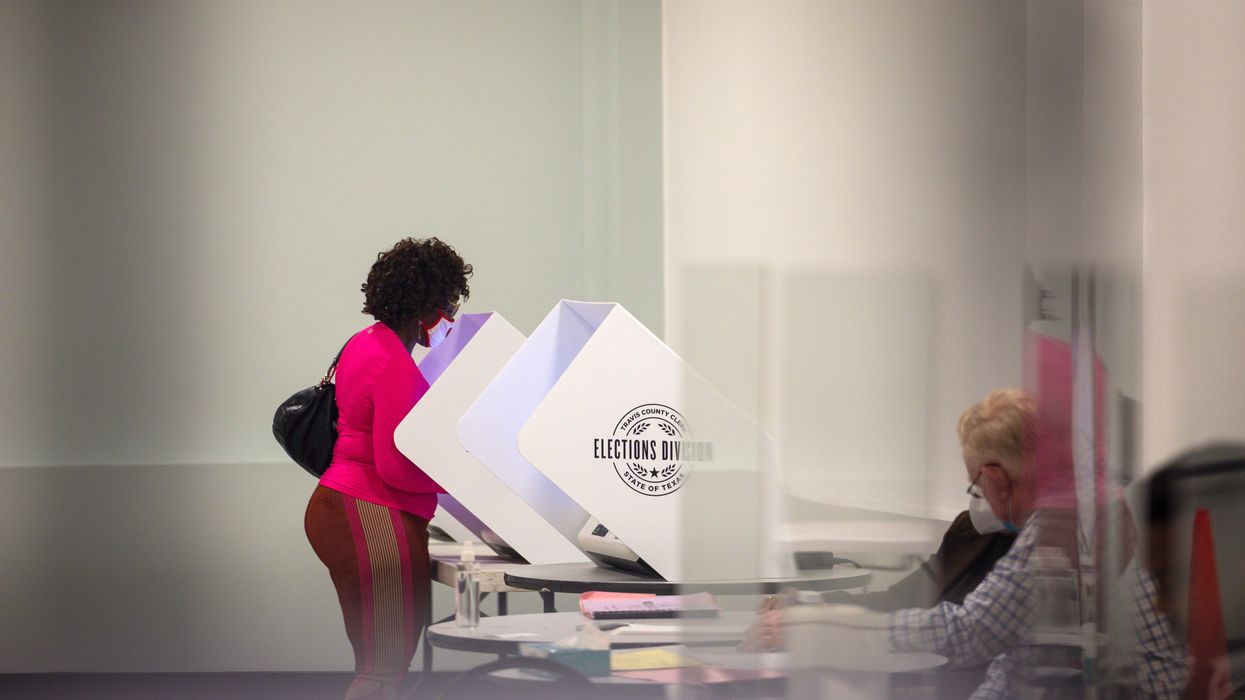Troiano is the executive director of Unite America, a nonpartisan organization focused on defending and reforming our democracy.
Voters will head to the polls throughout Tuesday to choose who will represent them in Congress, on high-stakes issues ranging from inflation to abortion. Yet the vast majority of congressional elections were effectively decided months ago, by a small and unrepresentative sliver of the electorate in partisan primaries – depriving millions of general election voters of any meaningful voice.
As a result, while which party will gain a legislative majority remains in question, we can be certain that the next Congress will be the most polarized and least accountable in our lifetimes, as this “Primary Problem” worsens with each election cycle.
To have a bigger impact on who we elect, we must change how we elect. Partisan primaries should be replaced with nonpartisan primaries that give all voters a say in who represents them, regardless of party. Alaska recently became the fourth state to do so. Nevada may be next.
Just 8 percent of eligible voters nationally voted in primaries that effectively determined the outcome of 83 percent of U.S. House seats this year. That’s according to a new analysis by Unite America, the nonpartisan election reform organization I run. This imbalance, between how few voters ultimately decide many congressional elections, is due to the fact that the vast majority of districts are “safe” for one party or another – meaning the winner of the dominant party’s primary is virtually guaranteed to win the general election. Very few voters participate in these primaries, and those who do are usually the strongest partisans.
The Primary Problem is worse than it even appears on the surface: In more than a third of House contests for safe seats (130), the dominant party’s primary was uncontested – giving voters no ability to choose their representative. In another 32 of these contests, the nominee won with just a plurality of votes, not a majority. And across nine states with closed primaries, nearly 13 million Americans who choose not to affiliate with either major party were locked out of participating altogether.
It’s not a problem unique to one party: In Texas, for example, primaries dictated the outcomes in 36 of the state’s 38 congressional districts – including in 15 runoff contests in which less than 3 percent of eligible voters turned out. In Massachusetts, the entire nine-member congressional delegation was effectively determined in the Democratic primary, where no candidate faced a single opponent. Can the November election even be called an election?
Primaries present an acute threat to democracy within the Republican Party, as increased polarization manifests as outright hostility to free and fair elections. In 117 “safe” GOP congressional districts, representing over a quarter of the next Congress, Republicans nominated candidates who have fully denied the outcome of the 2020 presidential election, according to FiveThirtyEight. Further, all four House Republicans who voted to impeach former President Donald Trump and ran for reelection in partisan primaries were defeated by Trump-backed challengers – with $53 million dollars of help from Democrats who sought to maximize their chances in the general election by running against a more extreme opponent.
What happens when both parties make standing up for democracy wholly incompatible with winning a Republican primary in any red state or district? Every election conducted under the design of our current system brings us closer to losing our republic altogether.
The only three Republican members of Congress who voted to impeach or convict Trump to make it to November’s elections are Rep. Dan Newhouse of Washington, Rep. David Valadao of California and Sen. Lisa Murkowski Alaska – who all hail from states that have scrapped partisan primaries.
Washington, California and Alaska have adopted nonpartisan primaries, in which all eligible voters can participate and all candidates run on a single ballot. Washington and California advance the top two finishers from the primary, regardless of party; Alaska advances the top four finishers to the final round, which is determined by an instant runoff.
Alaska’s system can be a model for our country. Almost every race remains competitive in the general election with multiple Democrats and Republicans on the ballot, giving every voter a real voice. There are no forgone conclusions based simply on the letter next to a candidate’s name on the ballot.
Nevada may follow in Alaska’s footsteps if voters pass a ballot initiative to adopt nonpartisan primaries this election, giving 600,000-plus independent voters a voice in elections they are currently prohibited from participating in. Both political parties oppose the measure — but a majority of voters have an opportunity to show them who is truly the boss on Tuesday.
Primary reform can ensure November elections matter for all voters – producing better choices, giving more power to millions of Americans who deserve to be heard, and fostering a more representative government at a time when democracy itself hangs in the balance.




















